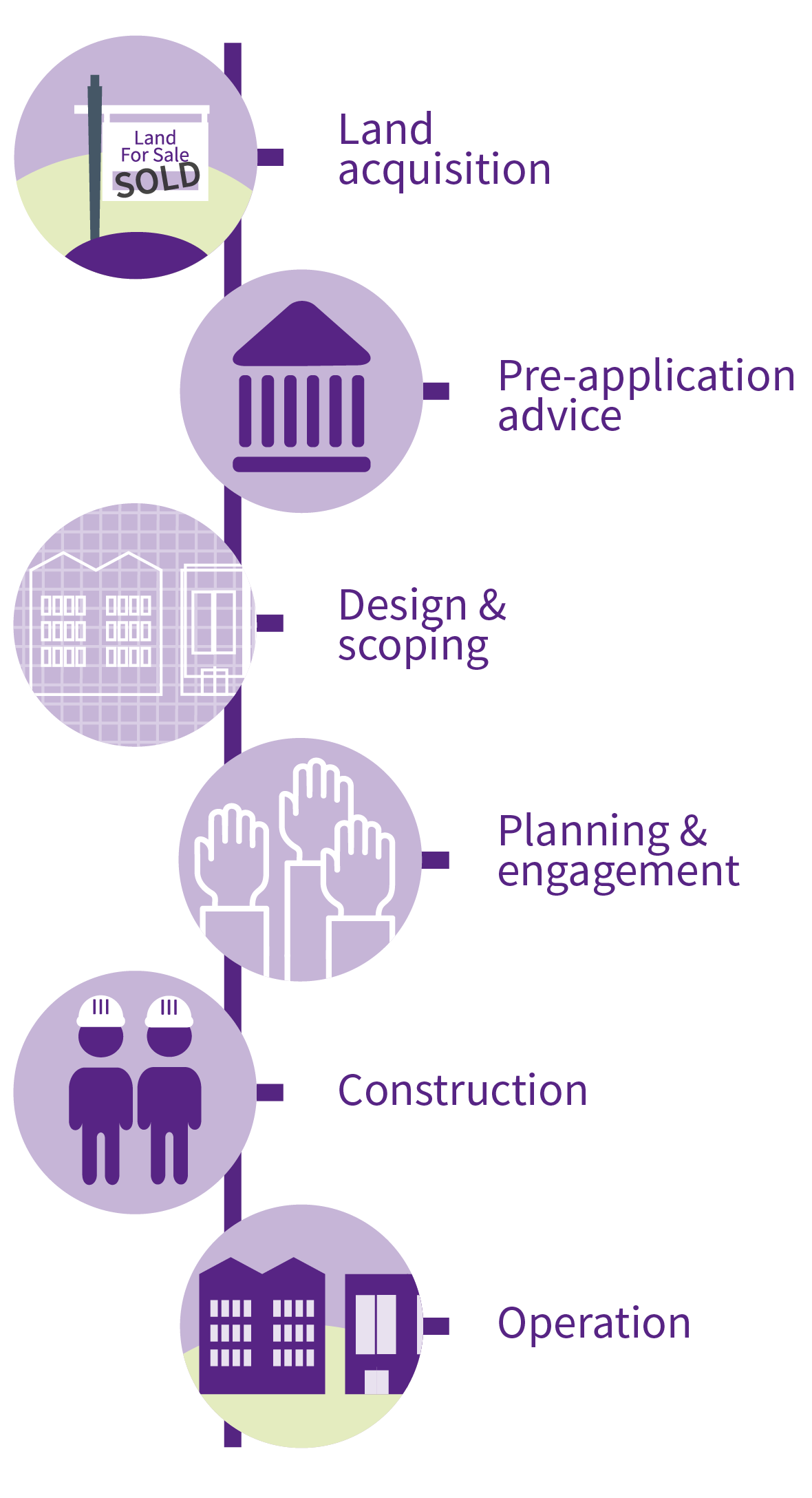Who are property developers?
Property developers come in varying shapes and sizes. They deliver almost all of the buildings and places in which we conduct our daily lives. This can include, homes, offices, shops, cinemas, hotels, industrial warehousing, GP surgeries and hospitals, theatres and museums, but also green and public spaces, transport and road infrastructure, and much more.
From small property developers who buy, renovate, and sell individual buildings, to much larger property developers who identify suitable land on which to design and deliver projects of significant scale and community value, there is a shared aim. The aim is to build (and in many instances) operate buildings and their surrounding public areas to improve people’s wellbeing and contribute to the growth of the economy.
Property development is not limited to private companies or individuals; government agencies and local authorities also often act as developers.
Why is property development important?
The needs of our communities and the economy are changing all the time and so the buildings that support them also need to change. Property development helps that happen - newer buildings are more environmentally sustainable, more economically productive and more pleasant to live and work in than outdated buildings. Without a thriving property development sector, our towns and cities would not be able to adapt to meet new challenges required by society.
Property developers play a crucial role in creating new buildings, but they take on a lot of risk in doing so. At every stage of the development cycle there is a risk that a project could get delayed or derailed. Whether it is the risk of failing to obtain formal permission to build, or a construction contractor going bust, or future economic downturns impacting the willingness of occupiers to rent a building, the risks associated with a process - that can sometimes span decades - must be weighed against the potential returns. This is why property development has become, and must be, a professional industry serviced by the respective skills, knowledge, judgement and expertise of a diverse workforce.
What do property developers do?
Whether a developer is building a single home, an office complex or a large new mixed-use neighbourhood, they will often go through a number of distinct phases, as set out in the diagram to the right. Not all developers will go through every phase and some projects will include additional phases.
The first phase will typically involve a developer identifying a piece of suitable vacant or occupied land with the capacity to deliver their ‘idea’. This involves extensive research to thoroughly understand the site, its relevant local authority development plan, and its community. Developers will also typically review relevant local and national policies to establish the suitability of the site and likelihood of securing permission to deliver their ‘idea’.
Developers will generally engage with local authorities at a very early stage regarding the suitability of their ‘idea’ through a process known as “pre-application” advice. In Scotland, developers must follow a statutory pre-application process for major developments. This helps developers make sure their plans support the local authority’s ambitions for the social, economic, and environmental betterment of an area and that local planning policy is fully taken into account.
Once a developer is comfortable that their ‘idea’ supports the ambitions of a local authority, the developer and their team of experts covering a wide range of disciplines will formulate the design and detail of the proposed project. This process will include formal or informal collaboration with existing local communities to ensure that priorities are shared and that the outputs will be positive.
In order to obtain legal permission to carry out a development the developer must submit a formal planning application to the relevant local authority. The submission needs to include details on many issues, ranging from the design and scale of the proposed development to the specific details associated with its construction and operation. This phase will also consider impacts of the proposed development on the existing community and any new infrastructure (from roads and bus stops to schools and GP surgeries) needed to support the development. Most developers will proactively engage with local residents, businesses, and other stakeholders to incorporate and prioritise their views.
The construction of any given project will involve a long supply chain of businesses depending on the scale and type of a development. This will include businesses that provide the raw materials, the contractors and sub-contractors that turn these materials into buildings and services, and the professionals that ensure the process operates efficiently and safely. Construction is a critical part of the development process and the economy; however, without development, its economic output would be significantly reduced.
Many developers will trade their new buildings once completed. The largest developers and property companies are more likely to retain new developments in ownership, letting and operating the building either through a managing agent or an in-house team. A new commercial development is often ‘pre-sold’ before it is constructed. Once complete, the development is formally transferred to the buyer, usually an institutional investor (see our page on property investment). That organisation will then takeover responsibility for the building’s operational management and maintenance.

